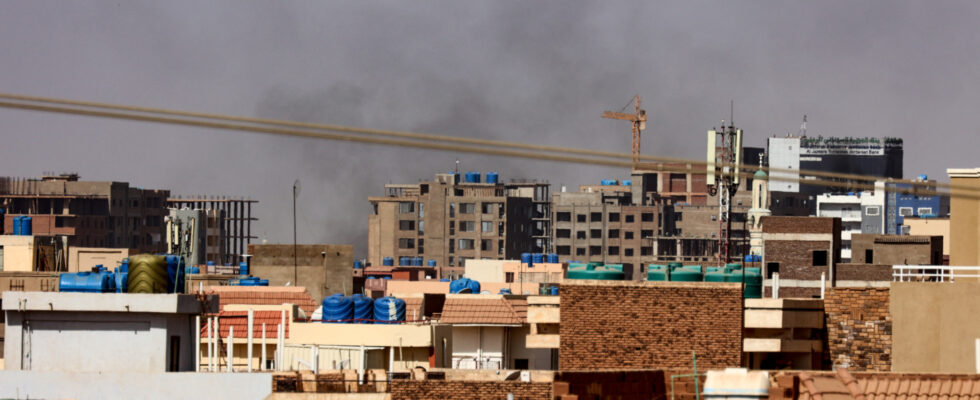The United States evacuated its embassy in Khartoum, followed by France on Sunday as deadly fighting between the army and paramilitaries has raged for more than a week in Sudan. Since April 15, the two generals in power since their 2021 putsch have embarked on a merciless war.
The violence, mainly in Khartoum and Darfur (west), has claimed more than 420 dead and 3,700 injured, according to the World Health Organization (WHO). They have displaced tens of thousands of people to other states in Sudan or across borders to Chad and Egypt. And they led to the mobilization of several countries to evacuate their nationals.
France announced on Sunday that it had begun a “rapid evacuation operation” of its nationals and diplomatic personnel. European nationals and nationals from “allied partner countries” are also supported.
Burned stores
US President Joe Biden had earlier announced that the military had “conducted an operation to extract US government personnel from Khartoum”. A “just under a hundred” people including several foreign diplomats were evacuated by means of a helicopter operation, said a senior State Department official, John Bass. But not the other American nationals, who would be several hundred in Sudan, whose evacuation is not planned “for the moment”.
On Saturday, Saudi Arabia had evacuated 91 Saudis and around 60 nationals from 12 other countries to Jeddah, on the Red Sea. For researcher Hamid Khalafallah, “demanding secure corridors to evacuate foreign nationals without at the same time demanding an end to the war would be terrible”. “The international actors will have less influence when they leave the country: do what you can to leave safely but do not leave the Sudanese behind without protection”, pleads this specialist in Sudan.
Because in Khartoum, the five million inhabitants now fear the worst: without running water and electricity almost continuously since the beginning of the fighting, with often faulty telephone and internet networks, they fear a resurgence of violence after the departure of foreigners.
According to testimonies collected by AFP, fighting and gunfire are still shaking the capital and its suburbs on Sunday. Fighter planes fly over them while their raids – coupled with paramilitary armored guns – have already destroyed or forced to close “72% of hospitals” in combat zones, according to the doctors’ union.
In the streets, the clashes have left their mark: lampposts are lying on the ground, burnt shops are still smoking. Here, a bank was gutted. There, despite everything, a mechanic tries to keep his shop open in case one of the very few passers-by needs his services.
The conflict erupted on April 15 between the army of General Abdel Fattah al-Burhane, Sudan’s de facto ruler since the 2021 putsch, and his deputy turned rival, General Mohamed Hamdane Daglo, who commands the much feared paramilitary Forces rapid support (FSR).
Regional risk
Hostilities erupted after they were unable to agree on the integration of the RSF into regular troops, after months of political negotiations under international auspices. On Friday, the army and the RSF had announced, separately, a three-day ceasefire for Eid al-Fitr, the holiday that marks the end of Ramadan. The two, however, immediately accused each other of violating the truce.
While the two sides are also engaged in an information war, it is impossible to know who controls the country’s airports and what state they are in after being the scene of heavy fighting since the first day of the conflict. This week, Eid al-Fitr has had a bitter taste for them. We usually celebrate this holiday “with pastries and gifts for the children”, but this year it is “gunshots and the smell of death”, says Sami al-Nour, a resident of Khartoum.
Living conditions are probably worse in Darfur, already the scene of a terrible conflict in the 2000s, no one being able to go to this region immediately. On site, a doctor from Médecins sans frontières (MSF) evokes a “catastrophic situation”. In Sudan, Africa’s third-largest gold producer and yet one of the world’s poorest countries, health services have been on their knees for decades and a third of the 45 million people suffer from hunger.
The cessation of operations by most humanitarian organizations will aggravate the situation. And the conflict now threatens to gain ground beyond Sudan’s borders, experts say.
